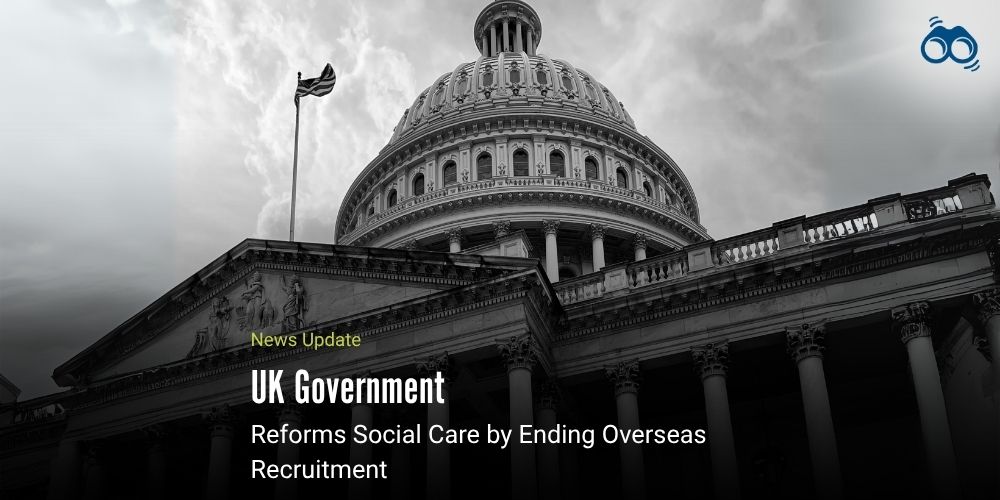Fair Pay Agreements and Workforce Training: The Government's Strategy to Solve the Care Sector Crisis
Social Care Crisis: UK Government's Immigration White Paper Puts International Workers in the Firing Line
The role of international care workers has long been regarded as essential to the UK’s social care system. However, with rising concerns about exploitation and unfair treatment, the government is reportedly preparing new immigration policies intended to address these issues while also reducing net migration. According to reports, forthcoming reforms may bring an end to overseas recruitment for care workers, signalling a significant shift in workforce policy. Given that many foreign workers have arrived to find themselves in financial hardship and facing employment uncertainty, these proposed changes reflect increasing efforts to tackle systemic challenges within the sector.
In March, the Home Office reportedly disclosed that over 470 care providers have had their sponsorship licences suspended since 2022. Consequently, the government is expected to implement further measures to stop additional overseas recruitment. This crackdown has displaced approximately 40,000 care workers, many of whom may now be offered the roles they were originally promised. At the same time, the government is said to be working on long-term strategies to train and develop a domestic care workforce.
Meanwhile, international workers who are already legally sponsored in the UK will reportedly still be permitted to extend their visas, switch employers, and apply for settlement, particularly in cases where their sponsoring organisations have lost their licences. To address wider issues in the sector, the government is also said to be introducing Fair Pay Agreements. These agreements aim to bring together workers, employers, and sector representatives to negotiate improved employment conditions. This initiative builds upon the January announcement regarding the expansion of the Care Workforce Pathway, which is intended to professionalise the adult social care workforce.
Collectively, these measures are believed to be designed to reduce the UK’s dependence on overseas workers within the care sector. In parallel, Baroness Casey has reportedly commenced work on an independent commission into adult social care, viewed as a rare opportunity to move beyond party politics and establish consensus on the sector’s long-term future. The Immigration White Paper, set to be published in full tomorrow, is reportedly part of the government’s broader efforts to restore control, fairness, and order to the immigration system, as well as to reduce net migration and promote economic growth. These developments signal a major policy shift aimed at reshaping the future of adult social care in the UK.
Editor's Note:
The government’s proposed changes to immigration policy, particularly regarding the recruitment of international care workers, represent a significant and concerning shift. While the move to address exploitation and abuse within the sector is undeniably important, the sudden halting of overseas recruitment risks exacerbating the existing crisis in social care. With an ageing population and a care sector already struggling with severe staff shortages, cutting off the supply of international workers could have long-term repercussions that are not being fully considered. While the government’s focus on training a "homegrown" workforce is commendable, it overlooks the deeper issues of underfunding and undervaluation within the UK’s social care sector. The real problem is not just a shortage of workers, but inadequate resources, poor conditions, and low pay, which make care work unattractive. To truly tackle exploitation, the government must address these structural issues, improving pay, conditions, and support for all care staff. Without this, the proposed reforms will only serve as a temporary fix to a much larger problem.
Skoobuzz highlights that the proposed changes may do more harm than good, leaving a vulnerable sector in even greater crisis and further alienating those who have long been the backbone of the UK’s social care system.














0 Comments (Please Login To Continue)